Nuts
How to submit an article:
- Registered users can submit any published journal article that has a unique DOI (Digital Object Identifier) name or link to Research Hub.
- For example, you can paste the full DOI link:
https://doi.org/10.1109/5.771073or just the DOI name:10.1109/5.771073into the field above and click submit. - The person who is first to submit a valid article to Research Hub will forever be credited for it, and every article submission earns you +6 Research Points.
Related Topics
Published research studies are articles that present the findings of original research that has undergone a peer-review process and has been made publicly available in scholarly journals, books or other media.

Walnut Consumption Improves Sleep Quality: A Randomized-Controlled Trial
2024 Feb 28 The 14th European Nutrition Conference FENS 2023 Izquierdo-Pulido M, Zerón-Rugerio MF, Ibarra-Picón A, Diez-Hernández M, Pérez-Cano F, Cambras T
Randomised Controlled Trial Sleep WalnutDaily consumption of walnuts improves sleep quality and reduces daytime sleepiness in healthy young adults.
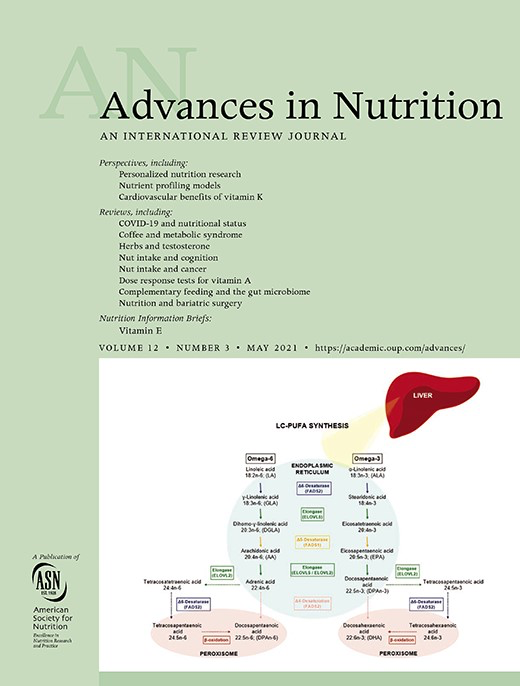
Nut Consumption and Fertility: a Systematic Review and Meta-Analysis
2024 Jan Advances in Nutrition Cardoso BR, Fratezzi I, Kellow NJ
Systematic Review Meta-Analysis Sperm Quality Nut Consumption Female Fertility Male Fertility Nuts NutRegular consumption of nuts improves sperm parameters such as motility, vitality, and morphology, potentially promoting successful reproductive outcomes in healthy males.

Peanut (Arachis hypogaea L.) seeds and by-products in metabolic syndrome and cardiovascular disorders: A systematic review of clinical studies
2024 Jan Phytomedicine Nunes YC, Santos GO, Machado NM, Otoboni AMMB, Laurindo LF, Bishayee A, et al.
Peanuts and their products, containing phytochemicals, can improve metabolic parameters and have the potential to be used as a sustainable and low-cost alternative for the prevention and treatment of MetS and CVD.
Systematic Review Review Article Peanut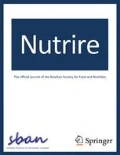
Nutritional and health-beneficial values of almond nuts consumption
2023 Nov 02 Nutrire Ouzir M
Review Article Cardiovascular Disease Cognitive Function Almond Type 2 Diabetes ObesityAlmond consumption has beneficial impacts on cardiovascular diseases, diabetes, obesity, and it can improve cognitive performance and protect against skin aging.

Isolation, Identification, Activity Evaluation, and Mechanism of Action of Neuroprotective Peptides from Walnuts: A Review
2023 Sep 21 Nutrients Zhang L, Bai YY, Hong ZS, Xie J, Tian Y
Review Article Stress Oxidative Stress Neuroprotective WalnutThe bioactive peptides found in walnuts have potential neuroprotective effects, including reducing oxidative stress and neuroinflammation, and promoting autophagy and balance in the cholinergic system.
Research insights are moderated by the Research Hub team and offer an at-a-glance overview of interesting research findings.

2024 The 14th European Nutrition Conference FENS 2023
Daily consumption of walnuts improves sleep quality and reduces daytime sleepiness in healthy young adults.
Randomised Controlled Trial Sleep Walnut
Walnut Consumption Improves Sleep Quality: A Randomized-Controlled Trial
Izquierdo-Pulido M, Zerón-Rugerio MF, Ibarra-Picón A, Diez-Hernández M, Pérez-Cano F, Cambras T

2024 Advances in Nutrition
Regular consumption of nuts improves sperm parameters such as motility, vitality, and morphology, potentially promoting successful reproductive outcomes in healthy males.
Systematic Review Female Fertility Male Fertility Nut Nut Consumption Sperm Quality
Nut Consumption and Fertility: a Systematic Review and Meta-Analysis
Cardoso BR, Fratezzi I, Kellow NJ

2023 Nutrire
Almond consumption has beneficial impacts on cardiovascular diseases, diabetes, obesity, and it can improve cognitive performance and protect against skin aging.
Review Article Almond Cardiovascular Disease Cognitive Function Obesity Type 2 Diabetes
Nutritional and health-beneficial values of almond nuts consumption
Ouzir M

2023 Nutrients
The bioactive peptides found in walnuts have potential neuroprotective effects, including reducing oxidative stress and neuroinflammation, and promoting autophagy and balance in the cholinergic system.
Review Article Neuroprotective Oxidative Stress Stress Walnut
Isolation, Identification, Activity Evaluation, and Mechanism of Action of Neuroprotective Peptides from Walnuts: A Review
Zhang L, Bai YY, Hong ZS, Xie J, Tian Y
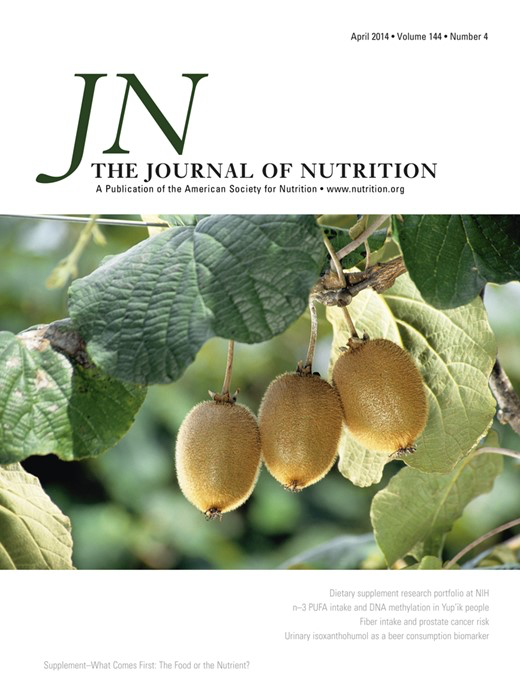
2023 The Journal of Nutrition
Regular nut consumption, particularly peanuts and walnuts, is associated with a lower incidence of frailty in aging female populations.
Cohort Study Frailty Peanut
Long-Term Consumption of Nuts (Including Peanuts, Peanut Butter, Walnuts, and Other Nuts) in Relation to Risk of Frailty in Older Women: Evidence from a Cohort Study
Wang R, Hannan MT, Wang M, Schwartz AW, Lopez-Garcia E, Grodstein F
Review Articles
Review articles summarise and critically evaluate the current state of research on a specific topic or field by synthesising multiple primary research studies.

Nut Consumption and Fertility: a Systematic Review and Meta-Analysis
2024 Jan Advances in Nutrition Cardoso BR, Fratezzi I, Kellow NJ
Systematic Review Meta-Analysis Sperm Quality Nut Consumption Female Fertility Male Fertility Nuts NutRegular consumption of nuts improves sperm parameters such as motility, vitality, and morphology, potentially promoting successful reproductive outcomes in healthy males.

Peanut (Arachis hypogaea L.) seeds and by-products in metabolic syndrome and cardiovascular disorders: A systematic review of clinical studies
2024 Jan Phytomedicine Nunes YC, Santos GO, Machado NM, Otoboni AMMB, Laurindo LF, Bishayee A, et al.
Peanuts and their products, containing phytochemicals, can improve metabolic parameters and have the potential to be used as a sustainable and low-cost alternative for the prevention and treatment of MetS and CVD.
Systematic Review Review Article Peanut
Nutritional and health-beneficial values of almond nuts consumption
2023 Nov 02 Nutrire Ouzir M
Review Article Cardiovascular Disease Cognitive Function Almond Type 2 Diabetes ObesityAlmond consumption has beneficial impacts on cardiovascular diseases, diabetes, obesity, and it can improve cognitive performance and protect against skin aging.

Isolation, Identification, Activity Evaluation, and Mechanism of Action of Neuroprotective Peptides from Walnuts: A Review
2023 Sep 21 Nutrients Zhang L, Bai YY, Hong ZS, Xie J, Tian Y
Review Article Stress Oxidative Stress Neuroprotective WalnutThe bioactive peptides found in walnuts have potential neuroprotective effects, including reducing oxidative stress and neuroinflammation, and promoting autophagy and balance in the cholinergic system.

Recent Studies on Protective Effects of Walnuts against Neuroinflammation
2022 Oct 18 Nutrients Tan B, Wang Y, Zhang X, Sun X
Review Article Cognitive Function Neurodegenerative Diseases Anti-Inflammatory WalnutWalnuts, rich in anti-inflammatory ingredients, potentially regulate neuroinflammation, improve cognitive function, reduce oxidative stress, and maintain gut health, thereby suggesting their use against neurodegenerative diseases.
Clinical Trials
Clinical trials are research studies that involve people and are conducted to evaluate the safety and efficacy of new treatments or interventions, such as drugs, medical devices, or behavioural therapies.

Walnut Consumption Improves Sleep Quality: A Randomized-Controlled Trial
2024 Feb 28 The 14th European Nutrition Conference FENS 2023 Izquierdo-Pulido M, Zerón-Rugerio MF, Ibarra-Picón A, Diez-Hernández M, Pérez-Cano F, Cambras T
Randomised Controlled Trial Sleep WalnutDaily consumption of walnuts improves sleep quality and reduces daytime sleepiness in healthy young adults.
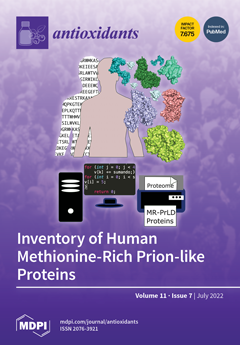
Urinary Phenolic Metabolites Associated with Peanut Consumption May Have a Beneficial Impact on Vascular Health Biomarkers
2023 Mar 11 Antioxidants Parilli-Moser I, Domínguez-López I, Vallverdú-Queralt A, Hurtado-Barroso S, Lamuela-Raventós R
Consumers of SRP and PB exhibited significantly higher excretion of specific UPMs, including enterodiol glucuronide, 3-hydroxybenzoic acid, vanillic acid sulfate, p-coumaric acid, coumaric acid glucuronide I and II, and isoferulic acid, compared to the control group. The peanut interventions also led to an improvement in prostacyclin I2 (PGI2) levels and the thromboxane A2 (TXA2):PGI2 ratio. Higher post-intervention levels of UPMs were correlated with positive changes in vascular biomarkers, indicating a potential positive impact of peanut product consumption on vascular health.
Clinical Study Randomised Controlled Trial Peanut Cardiovascular Disease
The Effects of Walnuts and Academic Stress on Mental Health, General Well-Being and the Gut Microbiota in a Sample of University Students: A Randomised Clinical Trial
2022 Nov 11 Nutrients Herselman MF, Bailey S, Deo P, Zhou XF, Gunn KM, Bobrovskaya L
Randomised Controlled Trial Students Stress Gut Microbiota WalnutWalnut consumption improves mental health indicators and negates some negative effects of academic stress on students' health and gut microbiota, especially in females.
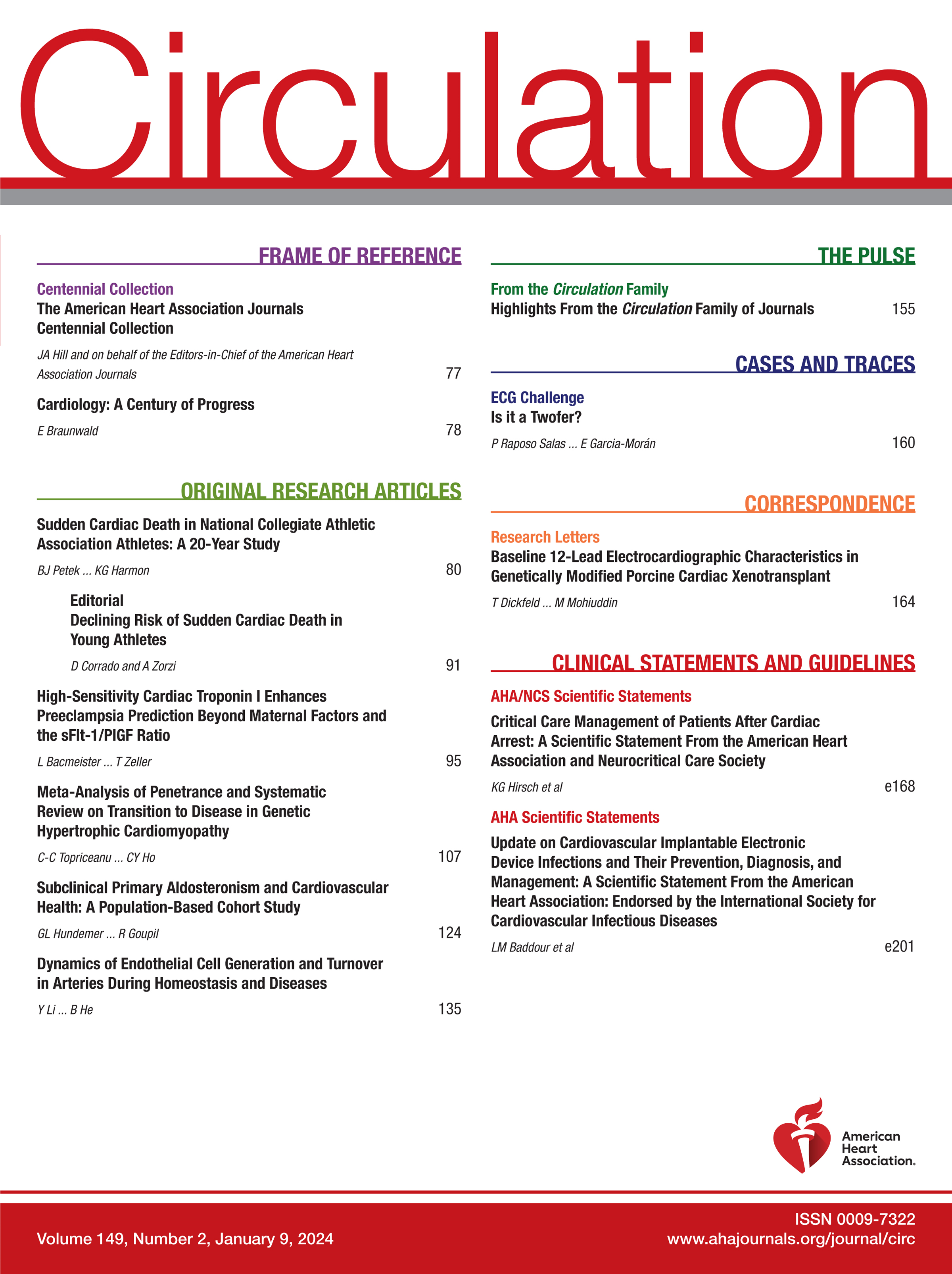
Effects of Walnut Consumption for 2 Years on Lipoprotein Subclasses Among Healthy Elders
2021 Sep 28 Circulation Rajaram S, Cofán M, Sala-Vila A, Haddad E, Serra-Mir M, Bitok E, et al.
Randomised Controlled Trial Cholesterol Walnut LDL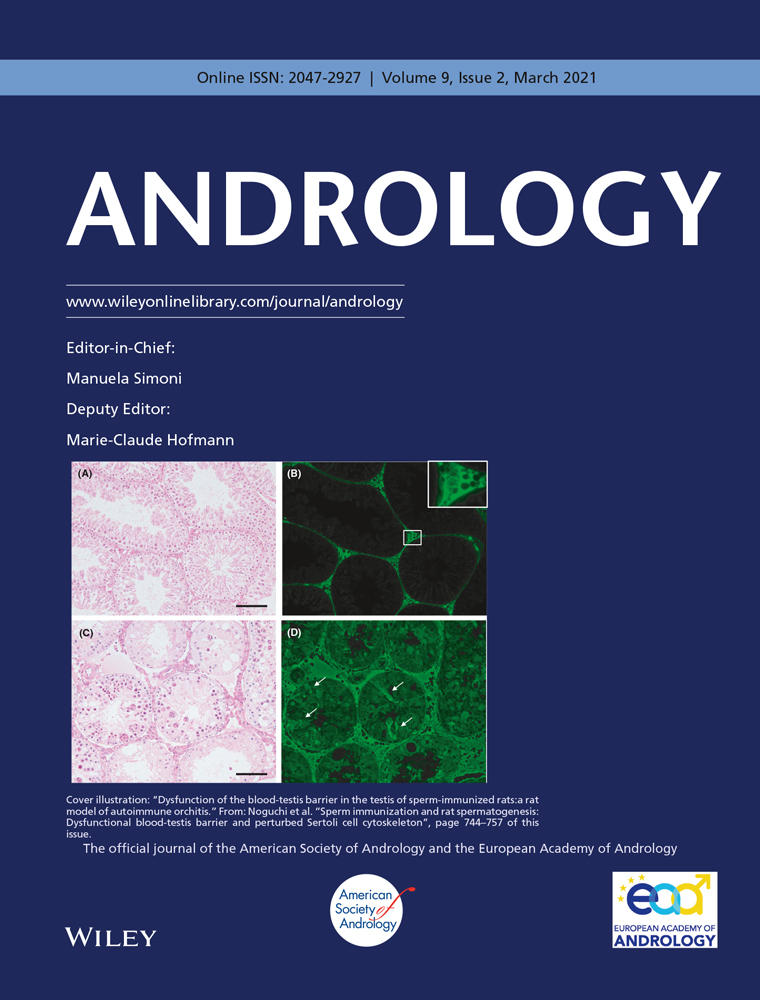
Sperm DNA methylation changes after short‐term nut supplementation in healthy men consuming a Western‐style diet
2020 Nov 03 Andrology Salas‐Huetos A, James ER, Salas‐Salvadó J, Bulló M, Aston KI, Carrell DT, et al.
Randomised Controlled Trial Hazelnut Sperm Quality WalnutIncorporating tree nuts into a Western-style diet subtly modifies specific DNA methylation regions within sperm, thereby showing parts of the sperm epigenome can respond to dietary changes.
Study Protocols
Published study protocols are detailed plans that outline the objectives, methodology, statistical analyses, and organisation of a research study that have been made publicly available for others to review and use as a reference.
Presentation Slides

Randomised Controlled Trial
Daily consumption of walnuts improves sleep quality and reduces daytime sleepiness in healthy young adults.
Izquierdo-Pulido M, Zerón-Rugerio MF, Ibarra-Picón A, Diez-Hernández M, Pérez-Cano F, Cambras T

Systematic Review
Regular consumption of nuts improves sperm parameters such as motility, vitality, and morphology, potentially promoting successful reproductive outcomes in healthy males.
Cardoso BR, Fratezzi I, Kellow NJ

Review Article
Almond consumption has beneficial impacts on cardiovascular diseases, diabetes, obesity, and it can improve cognitive performance and protect against skin aging.
Ouzir M

Review Article
The bioactive peptides found in walnuts have potential neuroprotective effects, including reducing oxidative stress and neuroinflammation, and promoting autophagy and balance in the cholinergic system.
Zhang L, Bai YY, Hong ZS, Xie J, Tian Y

Cohort Study
Regular nut consumption, particularly peanuts and walnuts, is associated with a lower incidence of frailty in aging female populations.
Wang R, Hannan MT, Wang M, Schwartz AW, Lopez-Garcia E, Grodstein F

Randomised Controlled Trial
Walnut consumption improves mental health indicators and negates some negative effects of academic stress on students' health and gut microbiota, especially in females.
Herselman MF, Bailey S, Deo P, Zhou XF, Gunn KM, Bobrovskaya L

Review Article
Walnuts, rich in anti-inflammatory ingredients, potentially regulate neuroinflammation, improve cognitive function, reduce oxidative stress, and maintain gut health, thereby suggesting their use against neurodegenerative diseases.
Tan B, Wang Y, Zhang X, Sun X
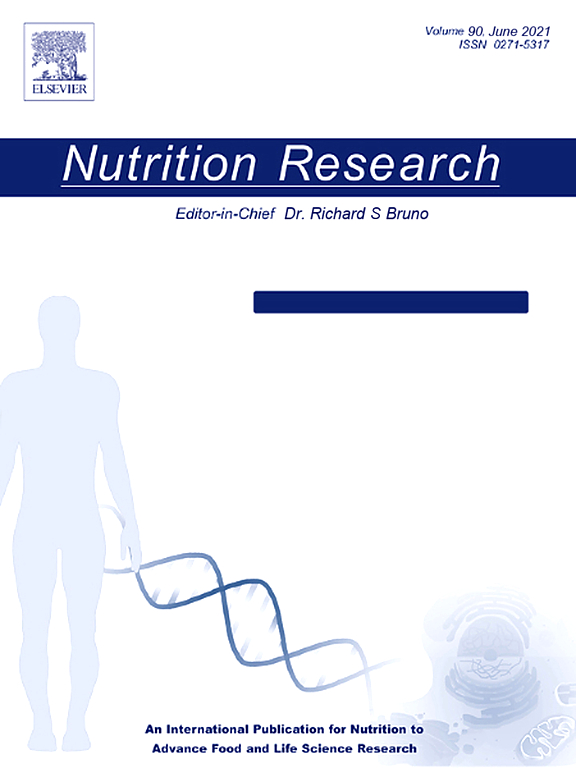
Cohort Study
Tree nut consumption is inversely associated with the prevalence of hyperestrogenism and circulating estradiol levels in men.
Wang Y, Fang Y

Experimental Study
Tiger nut and walnut supplementation in diets can improve testosterone levels and help control vasoconstriction, potentially benefiting hypertensive individuals.
Olabiyi AA, Morsch VM, Oboh G, Schetinger MRC

Systematic Review
The available evidence provides a good indication that nut consumption can result in a small improvement in blood pressure in adults.
Ahmad Jayedi, Tauseef Ahmad Khan, Amin Mirrafiei, Bahareh Jabbarzadeh, Yasaman Hosseini, Sheida Motlagh, Aliyu Tijani Jibril, Hossein Shahinfar, Sakineh Shab-Bidar
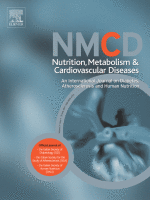
Systematic Review
Consumption of certain foods like rapeseed/canola oil, avocados, and turmeric can lead to moderate to large reductions in LDL cholesterol levels.
Schoeneck M, Iggman D
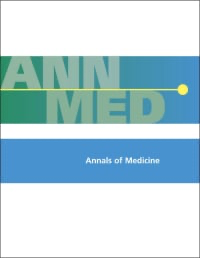
Systematic Review
The existing evidence, although with low level of confidence, suggests that walnut intake may have a beneficial effect on cognition-related outcomes, including cognitive function, mood, and stroke.
Cahoon, D., Shertukde, S. P., Avendano, E. E., Tanprasertsuk, J., Scott, T. M., Johnson, E. J., Chung, M., & Nirmala, N.

Systematic Review
Regular walnut consumption is consistently linked to improved cognitive performance in adults, particularly those at higher risk of cognitive decline.
Lauren E Theodore, Nicole J Kellow, Emily A McNeil, Evangeline O Close, Eliza G Coad, Barbara R Cardoso,

Randomised Controlled Trial
Incorporating tree nuts into a Western-style diet subtly modifies specific DNA methylation regions within sperm, thereby showing parts of the sperm epigenome can respond to dietary changes.
Salas‐Huetos A, James ER, Salas‐Salvadó J, Bulló M, Aston KI, Carrell DT, Jenkins TG
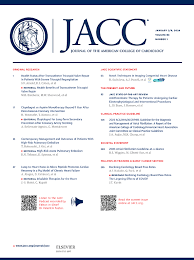
Randomised Controlled Trial
Incorporating daily doses of walnuts into the diet of elderly individuals significantly reduces the concentrations of several inflammatory biomarkers.
Cofán M, Rajaram S, Sala-Vila A, Valls-Pedret C, Serra-Mir M, Roth I, Freitas-Simoes TM, Bitok E, Sabaté J, Ros E
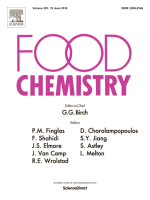
Experimental Study
Soaking nuts doesn't increase the bioavailability of their nutrients, instead, it reduces the mineral concentration, particularly in chopped nuts.
Kumari S, Gray AR, Webster K, Bailey K, Reid M, Kelvin KAH, Tey SL, Chisholm A, Brown RC

Systematic Review
These reports suggest the benefits of a walnut-enriched diet in brain disorders and in other chronic diseases, due to the additive or synergistic effects of walnut components for protection against oxidative stress and inflammation in these diseases.
Chauhan A, Chauhan V.

Randomised Controlled Trial
Consuming walnuts daily can reduce cardiovascular risk factors in chronic kidney disease patients without altering significant physiological levels.
Sanchis P, Molina M, Berga F, Muñoz E, Fortuny R, Costa-Bauzá A, Grases F, Buades JM

Randomised Controlled Trial
Adding nuts to a regular diet can significantly improve self-reported orgasmic function and sexual desire in healthy males.
Salas-Huetos A, Muralidharan J, Galiè S, Salas-Salvadó J, Bulló M
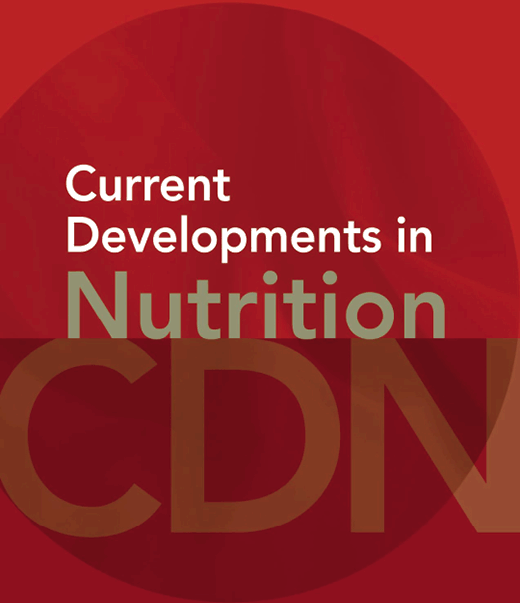
Randomised Controlled Trial
Consuming walnuts can enhance sperm motility and morphology, potentially improving fertility in males with infertility issues.
Robbins W, Kim H, Houman J, Lee GW
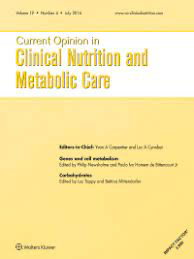
Systematic Review
Most bioactive walnut micronutrients synergize to affect multiple metabolic pathways leading to protection from chronic noncommunicable diseases.
Ros, Emilioa,b; Izquierdo-Pulido, Maríab,c; Sala-Vila, Aleix
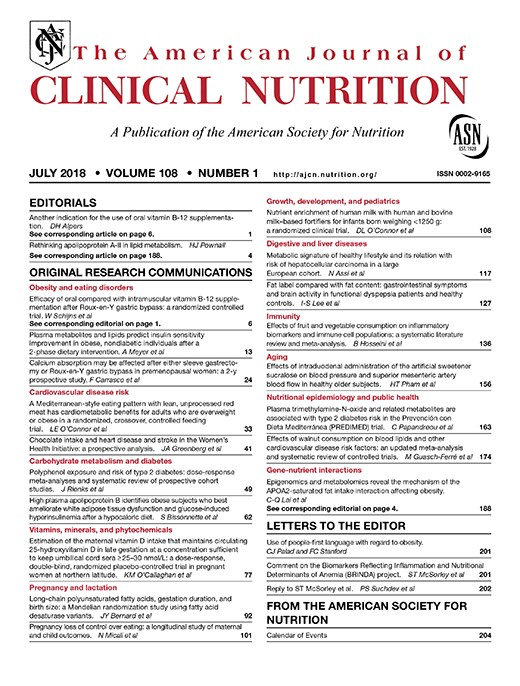
Systematic Review
Incorporating walnuts into the diet improved blood lipid profile without adversely affecting body weight or blood pressure.
Marta Guasch-Ferré, Jun Li, Frank B Hu, Jordi Salas-Salvadó, Deirdre K Tobias

Randomised Controlled Trial
Walnuts appear to enhance mood in non-depressed healthy young males.
Pribis P
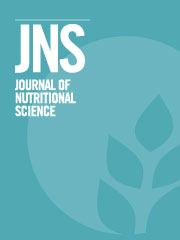
Systematic Review
Almond consumption effectively reduces blood lipid levels, thus reducing risk of heart disease.
Musa-Veloso K, Paulionis L, Poon T, Lee HY

Systematic Review
Polyphenolic compounds found in walnuts not only reduce the oxidant and inflammatory load on brain cells but also improve interneuronal signaling, increase neurogenesis, and enhance sequestration of insoluble toxic protein aggregates.
Poulose SM, Miller MG, Shukitt-Hale B

Randomised Controlled Trial
Consuming 75g of whole-shelled walnuts daily improves sperm vitality, motility, and morphology in young men adhering to a Western-style diet.
Robbins WA, Xun L, FitzGerald LZ, Esguerra S, Henning SM, Carpenter CL
Executive Summary
Write an executive summary in the form of a blog article on the topic of "Research into Chinese medicine treatment for Nuts" summarising the research below and using language that can be easily understood by patients and avoiding medical jargon using a professional and caring tone of voice.
Write an executive summary in the form of a blog article on the topic of "Researched Chinese medicine treatments for Nuts" summarising the research below in an objective and easy to understand way, and using language that can be easily understood by patients. Group the article into Chinese medicine treatments first, followed by nutrition and other treatments. Avoid using medical jargon and use a professional and caring tone of voice.
Write me a concise but easy to understand executive summary on the topic of "Chinese medicine treatments for Nuts" based on the following research that I will give you. Your summary should be 2 paragraphs long in Australian English spelling and include references to the studies.
A Randomised Controlled Trial published in 2024 in the journal The 14th European Nutrition Conference FENS 2023 found that Daily consumption of walnuts improves sleep quality and reduces daytime sleepiness in healthy young adults. In the above-mentioned experimental trial, 80 young adults were randomly selected to either consume 40 grams of walnuts daily or abstain from eating walnuts and any other nuts for 8 weeks, followed by a two-week break. Actigraphy was used to measure sleep quality, from various dimensions such as duration, latency, awakenings, and sleep efficiency, while daytime sleepiness was measured using the Epworth Sleepiness Scale. Furthermore, the concentration of 6-sulfatoxymelatonin, a melatonin metabolite, was assessed in urine samples collected at two intervals throughout the day and night. This research observed a notable improvement in the subjects' sleep quality after an 8-week period of walnut consumption. The participants experienced shorter sleep latency, greater sleep efficiency, and reduced daytime sleepiness. Additionally, there was a heightened concentration of 6-sulfatoxymelatonin in urine samples collected between 20:00 to 23:00. These results suggest that a daily intake of 40 grams of walnuts may augment the secretion of melatonin, thereby improving sleep quality and reducing daytime sleepiness in healthy young adults.
A Systematic Review published in 2024 in the journal Advances in Nutrition found that Regular consumption of nuts improves sperm parameters such as motility, vitality, and morphology, potentially promoting successful reproductive outcomes in healthy males. The researchers in this study carried out a systematic review and meta-analysis, exploring the impact of nut intake on fertility outcomes. They sourced data from four databases: Ovid MEDLINE, Embase, CINAHL, and Scopus, from their inception until June 2023. The inclusion criteria for articles were humans of reproductive age who had consumed nuts for a minimum of three months, with any consequent fertility-related outcomes reported. The researchers undertook a random-effects meta-analysis to produce a collective estimate of the effect of nut consumption on four specific sperm characteristics: total motility, vitality, morphology, and concentration. In this review and meta-analysis, the researchers involved four studies, evaluating a total of 875 participants, composed of 646 males and 229 females. For males, two randomized control trials involving 223 individuals revealed that a daily consumption of at least 60g of nuts led to an improvement in sperm motility, vitality, and morphology, compared to those consuming fewer nuts, though it did not affect sperm concentration. Conversely, the non-randomized studies could not discern an association between nut consumption and traditional sperm parameters in males, nor could they establish a link between nut intake and embryo implantation, clinical pregnancy or live birth in males and females undergoing Assisted Reproductive Technology (ART).
A Review Article published in 2023 in the journal Nutrire found that Almond consumption has beneficial impacts on cardiovascular diseases, diabetes, obesity, and it can improve cognitive performance and protect against skin aging. The methodology employed in this study included analyzing a range of clinical studies centered on the health benefits linked to the consumption of sweet almond nuts. Various health outcomes correlated with almond consumption were investigated such as body weight, food intake, blood pressure, blood lipid composition, glucose and insulin levels, oxidative status, liver enzymes, and some inflammation biomarkers. The discussion of the results reveals that almond consumption has been found to create favorable alteration in aspects like body weight, food intake, blood pressure, blood lipid composition, glucose, and insulin levels, as well as oxidative status, liver enzymes, and inflammation biomarkers. These findings highlight the beneficial impact of almonds on multiple health issues including cardiovascular diseases, diabetes, and obesity. Additionally, the consumption of almonds has been associated with improved cognitive performance and protection against skin photodamage and aging.
A Review Article published in 2023 in the journal Nutrients found that The bioactive peptides found in walnuts have potential neuroprotective effects, including reducing oxidative stress and neuroinflammation, and promoting autophagy and balance in the cholinergic system. The research method used includes the development of various procedures to prepare, isolate, purify, and identify the neuroprotective peptides found in walnuts. Different evaluation approaches were then used to gauge the activity of these peptides within experimental setups, placing emphasis on potential oxidative stress reduction, neuroinflammation mitigation, autophagy promotion, gut microflora regulation, and cholinergic system balance enhancement. The discussion of the results suggests the confirmed neuroprotective benefits of walnut-derived peptides. These peptides showcased their ability to reduce oxidative stress, combat neuroinflammation, stimulate autophagy, and regulate gut microflora and the cholinergic system. Consequently, these findings highlight the value of walnuts in diet, and the potential for these peptides to be utilized as functional food ingredients promoting neurohealth.
A Cohort Study published in 2023 in the journal The Journal of Nutrition found that Regular nut consumption, particularly peanuts and walnuts, is associated with a lower incidence of frailty in aging female populations. The methodology of the study includes a population-based observational study of nonfrail women aged 60 and above from 11 states across the US, from the Nurses' Health Study. The outcome focused on incidence of frailty, defined through the FRAIL components such as fatigue, lower strength, reduced aerobic capacity, multiple chronic conditions, and significant weight loss. These were assessed every four years from 1992 to 2016. Food Frequency Questionnaires were used to examine the intake of peanuts, peanut butter, walnuts, and other nuts every four years from 1990 to 2014. Total nut consumption was calculated and categorized into varying serving sizes, and the relation of intake of each type of nut with frailty was examined separately using Cox proportional hazard models, adjusted for various factors such as age, smoking, BMI, diet quality, and medication use. In discussing the results, out of 71,704 participants, 14,195 frailty cases arose over a million person-years. Notably, regular consumption of nuts, particularly peanuts and walnuts, showed a significant inverse relation with frailty. That is, a higher intake of these types of nuts were associated with lower cases of frailty. However, the same didn't apply to peanut butter. This affirms the potential benefits of regular nut consumption in aging female population's health and well-being.
A Randomised Controlled Trial published in 2022 in the journal Nutrients found that Walnut consumption improves mental health indicators and negates some negative effects of academic stress on students' health and gut microbiota, especially in females. In the study, the researchers launched a randomized clinical trial to study the effects of academic stress and daily walnut consumption on undergraduate students' mental health, general health biomarkers, and the gut microbiota. The specific aim was to examine the implications of stress and diet interplay, focusing specifically on the consumption of walnuts due to their previously demonstrated positive impact on mental wellbeing. In analyzing the results, they found that academic stress negatively affected the self-reported mood and overall mental health of the students. However, a daily intake of walnuts appeared to improve the mental health indicators. Notably, it provided a buffer against the adverse effects of academic stress on metabolic and stress biomarkers. Particularly in female students, academic stress was linked to reduced gut microbial diversity, a negative effect which walnut consumption seemed to counteract. The effects on male participants could not be definitively ascertained due to the smaller participant size.
A Review Article published in 2022 in the journal Nutrients found that Walnuts, rich in anti-inflammatory ingredients, potentially regulate neuroinflammation, improve cognitive function, reduce oxidative stress, and maintain gut health, thereby suggesting their use against neurodegenerative diseases. The methodology of the research includes a comprehensive review of the existing studies and experiments on walnuts and their active ingredients. These ingredients include large amounts of unsaturated fatty acids, peptides, and phenolic compounds known for their anti-inflammatory effects. Various studies covering the effect of these ingredients on the brain health of both rats and humans were analyzed. Specifically, the regulation of microglia activation induced by substances like amyloid β or lipopolysaccharides, the inhibition of peripheral inflammation led by macrophages, and the effects on oxidative stress and gut microbes were scrutinized. In the discussion of results, the studies presented compelling evidence of the beneficial effects of walnuts and their components on neuroinflammation and potential ways to counteract neurodegeneration. There seems to be a consensus in the experimental investigations that the walnut’s active ingredients can reduce inflammation and oxidative stress while maintaining gut homeostasis. They also show promise in improving cognitive functions and memory in both rats and humans. However, it was noted that the evidence from human clinical studies is not as abundant or conclusive as the experimental work, although the potential of walnut-based functional foods in mitigating neurodegenerative diseases was recognized.
A Cohort Study published in 2022 in the journal Nutrition Research found that Tree nut consumption is inversely associated with the prevalence of hyperestrogenism and circulating estradiol levels in men. This cross-sectional study utilized data from the US National Health and Nutrition Examination Survey between 2013 and 2016, and involved 3340 men aged 20 years and above. The associations of tree nut consumption with circulating estradiol - a form of the female sex hormone estrogen - and the prevalence of hyperestrogenism - a condition characterized by excess estrogen - were analyzed using weighted linear regression and binary logistic regression, respectively. Tree nut consumption was observed in 207 of the participants, with the average usual intake amounting to 34.2g per day. The study noticed an inverse relationship between the typical intake of tree nuts and levels of bioavailable estradiol, even after taking into account all confounding factors. Regular consumption of 30g/day or more of tree nuts was associated with significantly lower risk of hyperestrogenism. Furthermore, higher consumption of tree nuts was linked with higher levels of circulating folate, which was in turn inversely related to circulating estradiol. Therefore, the study concluded that increased tree nut consumption could potentially lower the risk of hyperestrogenism in men by reducing circulating estradiol levels.
A Experimental Study published in 2021 in the journal Nutrients found that Tiger nut and walnut supplementation in diets can improve testosterone levels and help control vasoconstriction, potentially benefiting hypertensive individuals. Rats were used in the experiment, placed into seven distinct groups with various diet and medicinal intake combinations including basal diet controls, supplemented processed and raw tiger nut (TN) and walnut (WN) diets, and more. Before hypertension was induced with L-NAME, the rats were given their regular diet for two weeks. After this period, they began receiving L-NAME for ten subsequent days. The scientists then measured the impacts on the rats' platelet androgen levels, ectonucleotidases, and adenosine deaminase (ADA). The L-NAME treatment resulted in a considerable decline in testosterone levels in the rats. However, the groups that were fed diets supplemented with TN and WN exhibited improved testosterone levels compared to the control group, yet their luteinizing hormone levels remained unchanged. The L-NAME-treated group also saw an increase in ATP hydrolysis and ADA activity, alongside a reduction in ADP and AMP hydrolysis. These effects were substantially reversed in the groups that were fed supplemented TN and WN diets. This suggests that TN and WN could enhance testosterone levels and modulate the purinergic system in platelets, which might be a potential mechanism through which they contribute to the control of vasoconstriction.
A Systematic Review published in 2021 in the journal medRxiv found that The available evidence provides a good indication that nut consumption can result in a small improvement in blood pressure in adults. A total of 31 RCTs with 2784 participants were included. Each 20 g/d increase in nut consumption reduced systolic blood pressure and diastolic blood pressure. The effect of nuts on systolic blood pressure was more evident in patients with type 2 diabetes. The results were robust in the subgroup of trials with low risk of bias. Levels of systolic blood pressure decreased proportionally with the increase in nuts consumption up to 40 g/d, and then appeared to plateau with a slight upward curve. A linear dose-dependent reduction was seen for diastolic blood pressure, with the greatest reduction at 80 g/d. The available evidence provides a good indication that nut consumption can result in a small improvement in blood pressure in adults. Well-designed trials are needed to confirm the findings in long term follow-up.
A Systematic Review published in 2021 in the journal Nutrition, Metabolism and Cardiovascular Diseases found that Consumption of certain foods like rapeseed/canola oil, avocados, and turmeric can lead to moderate to large reductions in LDL cholesterol levels. The research was carried out by conducting a systematic evaluation of existing guidelines, systematic reviews, and Randomised Control Trials (RCTs); we have only referred to the latter for studies on coffee intake. This was done on databases such as PubMed, Cochrane Database of Systematic Reviews, and Cochrane Central Register of Controlled Trials, alongside a search on the Trip database for guidelines. The time frame for the study was from its inception up until June 2019 and October 2019 respectively. Studies were included if they were at least 13 days in duration and were in English. Using the Grading of Recommendations Assessment, Development, and Evaluation (GRADE) method, 37 guidelines, 108 systematic reviews, and 20 RCTs were evaluated to analyze the strength of evidence in the context of food impacts on LDL cholesterol levels. The results of the research reveal that foods high in unsaturated and low in saturated and trans fatty acids such as rapeseed or canola oil, those with added plant sterols/stanols, and those high in soluble fibre like oats, barley and psyllium cause moderate reductions in LDL cholesterol. A moderate to a large increase was observed with unfiltered coffee though. Soy protein, tomatoes, flaxseeds, and almonds cause small reductions. Meanwhile, foods like avocados and turmeric cause moderate to large reductions with a moderate level of evidence supporting this observation. Other foods like pulses, hazelnuts, walnuts, high-fiber/wholegrain foods, green tea result in small to moderate reductions, and sugar causes a small increase. Several foods identified were either neutral or had low or very low evidence regarding their effects on LDL cholesterol levels.
A Systematic Review published in 2021 in the journal Annals of Medicine found that The existing evidence, although with low level of confidence, suggests that walnut intake may have a beneficial effect on cognition-related outcomes, including cognitive function, mood, and stroke. The existing evidence, although with low level of confidence, suggests that walnut intake may have a beneficial effect on cognition-related outcomes, including cognitive function, mood, and stroke. Limitations in study design and comparability render the available evidence insufficient to draw a firm conclusion regarding the effects of walnut on cognition in adults. High quality studies and standardized interventions and measurement tools are necessary to determine the role of walnut intake in cognitive health.
A Systematic Review published in 2020 in the journal Advances in Nutrition found that Regular walnut consumption is consistently linked to improved cognitive performance in adults, particularly those at higher risk of cognitive decline. The methodology of this review involved a systematic search of four different databases - Ovid MEDLINE, Scopus, CINAHL Plus, and Embase, from their inception through to April 2020. The search aimed to identify both interventional and observational studies that investigated the effect of nut intake on cognitive outcomes in adults aged 18 and above. The specific nuts studied included almonds, hazelnuts, macadamias, pistachios, walnuts, pecans, pine nuts, Brazil nuts, cashews, and peanuts. The review then selected the most relevant studies for further analysis; out of 2,374 identified articles, 22 met the criteria, with a combined participant count of 43,793. The resulting discussion of this review's findings highlighted that, despite inconsistencies due to varying study designs and types of nuts studied, regular mixed nut intake could potentially protect cognitive function in different age groups. However, more notable was the recurrent evidence found in studies focusing on groups at a higher risk of cognitive impairment, which repeatedly reported improved outcomes. Particularly, studies specifically targeting walnut consumption consistently found it positively associated with enhanced cognitive performance. The review found homogeneous results within these walnut-centred studies, with only one out of six, including two randomized controlled trials, not reporting a positive association.
A Randomised Controlled Trial published in 2020 in the journal Andrology found that Incorporating tree nuts into a Western-style diet subtly modifies specific DNA methylation regions within sperm, thereby showing parts of the sperm epigenome can respond to dietary changes. The study methodology involved a post hoc analysis with a subset of the participants (healthy, non-smoking, and young) from the FERTINUTS 14-week randomized-controlled, parallel trial. The selected participants were from the pool of individuals who completed the entire dietary intervention trial. These individuals were split into two groups: the nut group, which consumed 60 grams per day of mixed nuts for 14 weeks, and the control group, who maintained their regular Western-style diet devoid of nuts. Investigation of the trial's results revealed no significant changes in overall methylation between the two groups. However, for the nut group, there were 36 genomic regions distinctly showing differential methylation between the beginning and end of the trial with a marked increase in methylation. No such changes were identified in the control group. Analysis also involved examining if nut consumption led to changes in the epigenetic age of cells, but no significant differences were discovered.
A Randomised Controlled Trial published in 2020 in the journal Journal of the American College of Cardiology found that Incorporating daily doses of walnuts into the diet of elderly individuals significantly reduces the concentrations of several inflammatory biomarkers. This study followed the WALHA study protocol and involved 708 elderly participants from two centers, one in Barcelona, Spain, and another in Loma Linda, California. They were randomly assigned into two groups: one group incorporated walnuts, at least 15% of energy (30 to 60g per day), into their diets, while the other group abstained from walnuts. The participants visited dietitians every two months for advice to maintain their allocated diets and physical activity level. The walnut group received 8-week allotments of raw-piece walnuts in sachets for daily consumption. The researchers conducted assessments of inflammatory biomarkers at the start and end of this 2-year study. Differences in the changes of inflammatory markers between diets were analyzed using multivariate-adjusted analysis of covariance. Of the 634 participants who completed the study, 66% were women and 32% were on statins. The average age was 69 years. There were no changes in body weight throughout the trial. Incorporation of walnuts into the diet resulted in significantly reduced concentrations of six out of ten examined biomarkers. Changes in inflammatory molecules were not related to changes in the main food groups.
A Experimental Study published in 2020 in the journal Food Chemistry found that Soaking nuts doesn't increase the bioavailability of their nutrients, instead, it reduces the mineral concentration, particularly in chopped nuts. The study examined the effects of different soaking regimes on the phytate and mineral concentrations in whole and chopped almonds, hazelnuts, peanuts, and walnuts. Four treatments were employed: raw, soaking for 12 hours in salt solution, soaking for 4 hours in salt solution, and soaking for 12 hours in water. To analyze phytate concentrations, high-performance liquid chromatography was used and the mineral concentrations were evaluated by inductively coupled plasma mass spectrometry. In the evaluation of the results, it was observed that the differences in phytate concentrations between treated and untreated nuts were minimal, ranging from -12% to +10%. On the other hand, the soaking process resulted in diminished mineral concentrations, notably for chopped nuts. Furthermore, there were no improvements noted in the phytate:mineral molar ratios as a result of the soaking technique. Therefore, this study effectively disproves the notion that 'activating' nuts yields a greater nutrient bioavailability.
A Systematic Review published in 2020 in the journal Nutrients found that These reports suggest the benefits of a walnut-enriched diet in brain disorders and in other chronic diseases, due to the additive or synergistic effects of walnut components for protection against oxidative stress and inflammation in these diseases. Walnuts contain several components that have antioxidant and anti-inflammatory effects. Animal and human studies from our and other groups suggest that supplementation with walnuts in the diet may improve cognition and reduce the risk and/or progression of mild cognitive impairment and Alzheimer's disease. Furthermore, several animal and human studies have suggested that walnuts may also decrease the risk or progression of other brain disorders such as Parkinson’s disease, stroke, and depression, as well as of cardiovascular disease and type 2 diabetes. Together, these reports suggest the benefits of a walnut-enriched diet in brain disorders and in other chronic diseases, due to the additive or synergistic effects of walnut components for protection against oxidative stress and inflammation in these diseases.
A Randomised Controlled Trial published in 2019 in the journal Nutrients found that Consuming walnuts daily can reduce cardiovascular risk factors in chronic kidney disease patients without altering significant physiological levels. In this prospective, randomized, crossover, pilot clinical trial, 13 patients suffering from chronic kidney disease were selected as subjects. They were randomly divided into two groups, one of which was assigned a diet including 30 grams of walnuts each day while the other followed a control diet. After a duration of 30 days, a washout period of an additional 30 days was allowed, following which the groups were switched to the alternate diet. Key markers such as urinary and serum levels of phosphorous and potassium, multiple vascular risk factors, and urinary inositol phosphates were measured before initiating the trial and post the intervention period. The study indicated that a dietary supplement of walnuts resulted in reduced blood pressure, lower LDL cholesterol, and decreased albumin excretion. Interestingly, despite these changes, it had no impact on the physiological levels of phosphorous, potassium, parathyroid hormone, and fibroblast growth factor 23. This indicates that daily consumption of walnuts, when incorporated in a sodium, protein, phosphate, and potassium controlled diet, has the potential to be an effective strategy in reducing cardiovascular risk among chronic kidney disease patients without perturbing key physiological levels.
A Randomised Controlled Trial published in 2019 in the journal Nutrients found that Adding nuts to a regular diet can significantly improve self-reported orgasmic function and sexual desire in healthy males. In a 14-week randomized controlled trial, 83 healthy males aged 18-35 with erectile function assessment were divided into two groups. One group was given a regular Western-style diet enriched with 60g per day of a mixed nuts (43 participants), while the other group followed the same diet but avoided nuts (40 participants). At the beginning and end of the intervention, participants filled out a 15-question survey from the validated International Index of Erectile Function, and levels of nitric oxide and E-selectin were measured to assess changes in erectile function. Observing the impact of nut supplementation on sexual functionality showed that there was a significant increase in orgasmic function and sexual desire in the group that included nuts in their diet compared with the group that did not. Despite this, there were no appreciable differences in the peripheral concentrations of nitric oxide and E-selectin between the two groups.
A Randomised Controlled Trial published in 2019 in the journal Current Developments in Nutrition found that Consuming walnuts can enhance sperm motility and morphology, potentially improving fertility in males with infertility issues. This study was a randomized clinical trial split into two comparison groups, all of which received typical care for male infertility. Besides the usual care, one group added 42 gm/d walnuts to their diet, while the other group included a daily nutritional supplement recommended for male reproductive health. The participants, a total of 75 in number and with varied demographic profiles, were enrolled at an infertility clinic located in a large metropolitan medical center. The study ran for 3 months, with research measures including semen analysis and blood samples at baseline and after 3 months, while dietary recall and fertility reports were obtained at various stages. In terms of results, the group consuming walnuts showed a marked increase in sperm motility and concentration after 3 months. Simultaneously, both groups—those consuming walnuts and the group consuming the nutritional supplement—demonstrated an improvement in sperm morphology. Further, preliminary data observed over one year suggested a higher frequency of pregnancy in the group consuming walnuts, although it was not statistically significant.
A Systematic Review published in 2018 in the journal Current Opinion in Clinical Nutrition and Metabolic Care found that Most bioactive walnut micronutrients synergize to affect multiple metabolic pathways leading to protection from chronic noncommunicable diseases. Nuts in general and walnuts in particular are in the limelight for the association of their consumption with improved health outcomes. Walnuts have an optimal composition in bioactive nutrients and recent clinical and experimental studies have uncovered a number of beneficial effects of walnut micronutrients, working in isolation or in concert, on metabolic pathways and clinical outcomes that make this review timely and relevant. Alpha-linolenic acid, a critical walnut component, is metabolized into bioactive oxylipins, has been shown to protect microglial cells from inflammation, and is associated with lower fatal myocardial infarction rates through a putative antiarrhythmic effect. Phytosterols relate to the cholesterol-lowering effect of nut consumption. Nonsodium minerals are associated with better cardiometabolic health. Walnut phytomelatonin has anticancer effects that are shared by the main walnut polyphenols and their metabolites, ellagitannins and urolithins, respectively. This review highlights new evidence on the health-promoting properties of walnuts and their main micronutrient components. The conclusion is that walnuts are optimal healthful foods.
A Systematic Review published in 2018 in the journal The American Journal of Clinical Nutrition found that Incorporating walnuts into the diet improved blood lipid profile without adversely affecting body weight or blood pressure. The present meta-analysis of controlled trials provides robust evidence for the benefits of walnut consumption on blood lipids without adversely affecting body weight or blood pressure and supports the results of epidemiologic studies showing inverse associations between walnut consumption and CVD risk. Despite walnuts being energy-dense, the consumption of walnuts does not promote weight gain and thus they can be incorporated into an overall healthy dietary pattern to enhance health benefits.
A Randomised Controlled Trial published in 2016 in the journal Nutrients found that Walnuts appear to enhance mood in non-depressed healthy young males. The study's methodology involved an evaluation process using 64 volunteer college students. These individuals were randomly assigned into two different treatment sequences - one involving a walnut intake followed by a placebo, and the other vice versa. Both of these sequences began with an evaluation of the volunteers' base mood, measured using Profiles of Mood States (POMS). After an eight-week interval of sticking to the prescribed plan, their mood was assessed again. This was followed by a 'washout' period of six weeks, during which the volunteer groups reversed their dietary routines - those on walnuts moved to placebo and the ones on placebo switched to walnuts. After another eight-week interval, a final mood assessment occurred. The results displayed a lack of significant mood changes in females or when setting aside gender distinctions in the analysis. The exciting element of this study was found in assessing specifically healthy, non-depressed male subjects. There was a pertinent improvement in their Total Mood Disturbance score, implying an enhancement in mood when consuming walnuts.
A Systematic Review published in 2016 in the journal Journal of Nutritional Science found that Almond consumption effectively reduces blood lipid levels, thus reducing risk of heart disease. The researchers carried out a systematic review and meta-analysis drawing on data from controlled randomised trials. Their search of the scientific literature led them to a total of eighteen relevant publications and twenty-seven datasets, which offered a comparison between almond consumption and a control group. They then unified the studies by pooling the mean differences in the effects on each blood lipid parameter using a random-effects model. The analysis found that consuming almonds had a marked beneficial effect on levels of total cholesterol, LDL-cholesterol and TAG (triacylglycerol). However, it did not significantly affect HDL-cholesterol levels. This supports data from previous observational and large-scale interventional studies that showed nut consumption reduces the risk of heart disease. This goes to show that including nuts in a balanced diet is advisable for maintaining healthy blood lipid levels and preventing heart disease.
A Systematic Review published in 2014 in the journal The Journal of Nutrition found that Polyphenolic compounds found in walnuts not only reduce the oxidant and inflammatory load on brain cells but also improve interneuronal signaling, increase neurogenesis, and enhance sequestration of insoluble toxic protein aggregates. In conclusion, age-related increases in oxidative stress and inflammation, especially when coupled with metabolic and cardiovascular dysfunction, lead to neurodegeneration and cognitive decline. This process of brain aging occurs even in the absence of specific neurodegenerative diseases. Although most chronic neurodegenerative diseases cannot currently be cured, preventive measures earlier in life can protect cognitive function in old age and may prevent or delay the onset of debilitating neurodegenerative diseases. Dietary interventions provide a safe and palatable means of modifying the body's internal environment and, importantly, the neuronal environment within the brain. Walnut polyphenols and tocopherols can reduce oxidative stress and inflammation; furthermore, PUFAs help maintain neuronal membrane integrity and attenuate protein aggregation involved in AD. In rodent studies, the addition of dietary walnuts, equivalent to a single serving of walnuts for humans, was sufficient to improve both motor and cognitive behavior in aged animals. In humans, the inclusion of walnuts in the diet improved cardiovascular health, which is itself a risk factor for neurodegenerative diseases and age-related cognitive decline. Taken together, this evidence suggests that the integration of walnuts into a healthy diet could be an effective means of prolonging health spans, slowing the processes of brain aging, and reducing the risk of chronic neurodegenerative disease.
A Randomised Controlled Trial published in 2012 in the journal Biology of Reproduction found that Consuming 75g of whole-shelled walnuts daily improves sperm vitality, motility, and morphology in young men adhering to a Western-style diet. A random-led, two-group dietary intervention trial with single-blind outcome assessment was administered to 117 healthy men ranging from 21 to 35 years, all eating a Western-style diet. The main aim was to examine any changes in conventional semen parameters and sperm aneuploidy after 12 weeks, with changes in blood serum and sperm fatty acid profiles, sex hormones, and serum folate as secondary endpoints. The half of participants tasked with eating walnuts displayed improvements in sperm vitality, motility, and morphology, while no changes were seen in the control group that continued their normal diet and avoided tree nuts. The outcomes displayed that the group which had taken walnuts showed improvement in terms of their sperm vitality, motility, and morphology. There were also enhancements in serum fatty acid profiles, including increase in omega-6, and omega-3 amongst the walnut consuming group. No such improvements were observed in the control group. Furthermore, sperm aneuploidy was shown to have a reverse correlation with sperm alpha-linolenic acid, particularly in sex chromosome nullisomy.
Moderation Tools
Topic
Sign In
Users not signed in are limited to viewing the 5 most recent items of content.
No abstract? —Adrian Y 16 Jan 2024